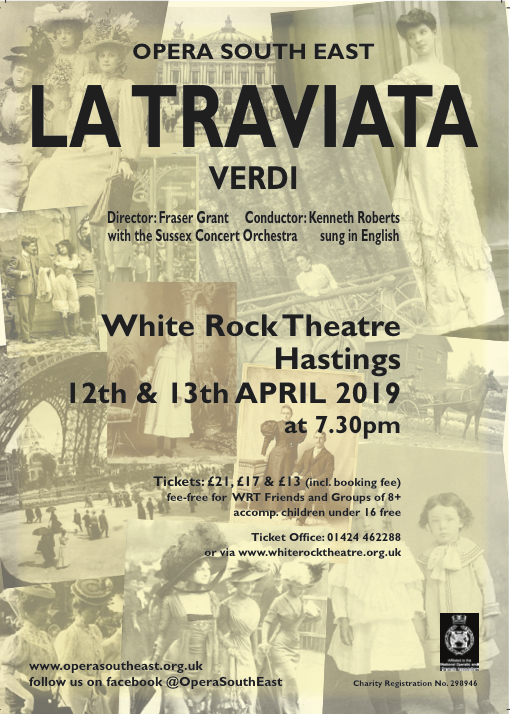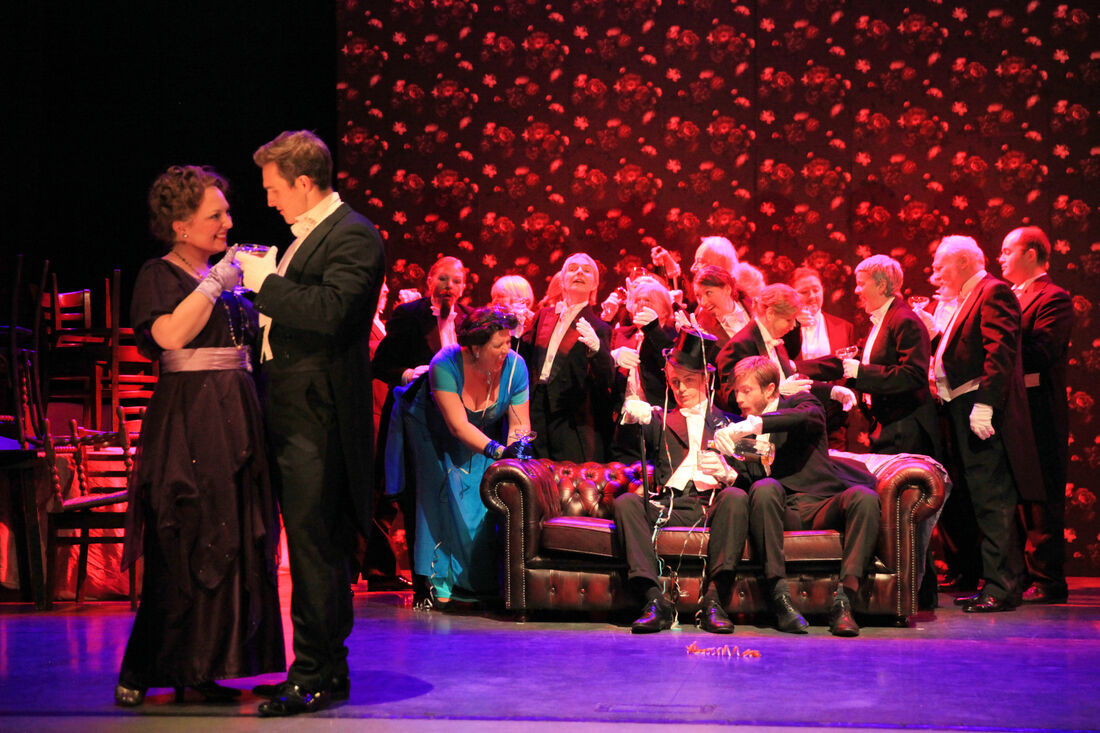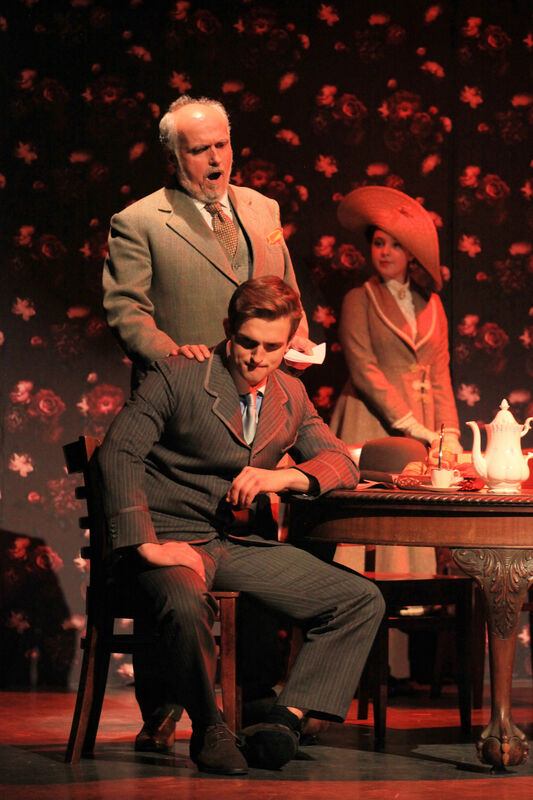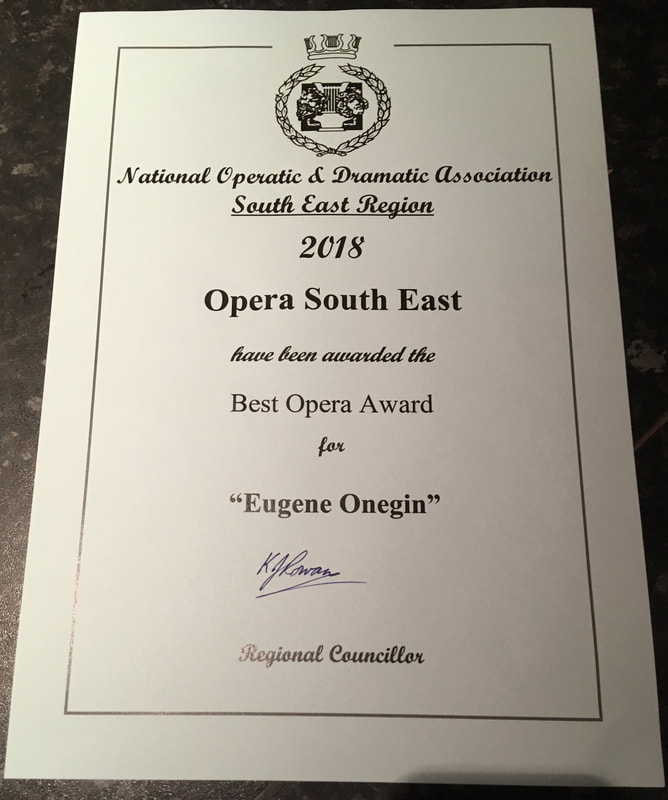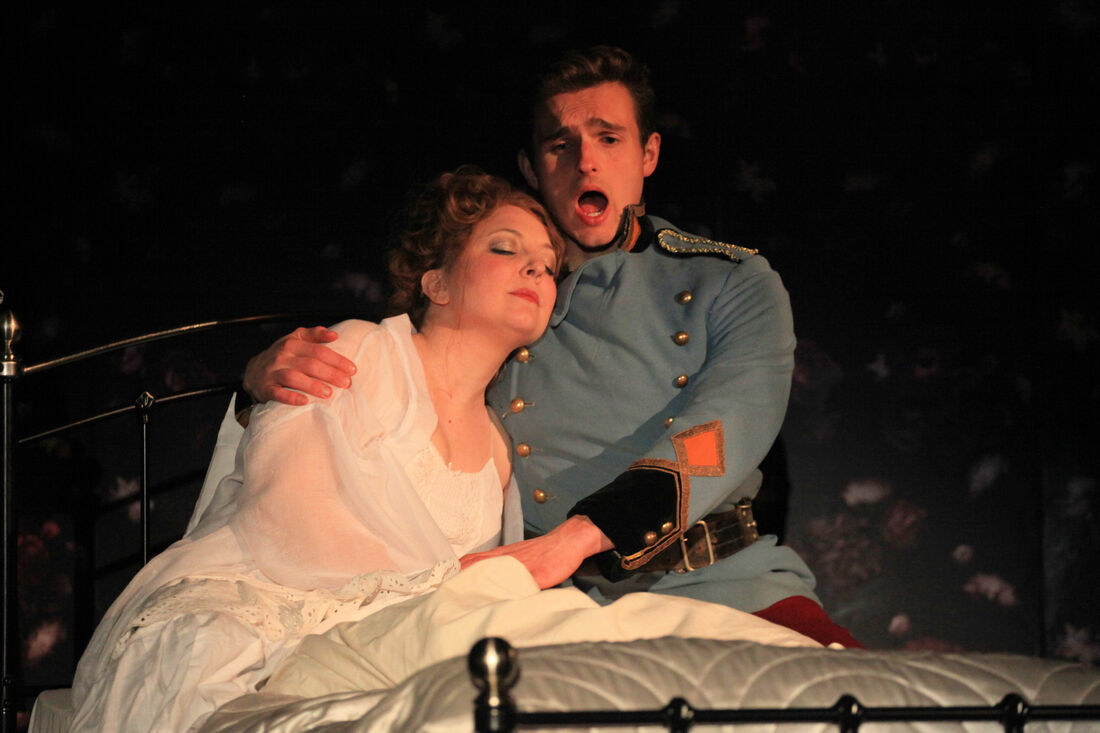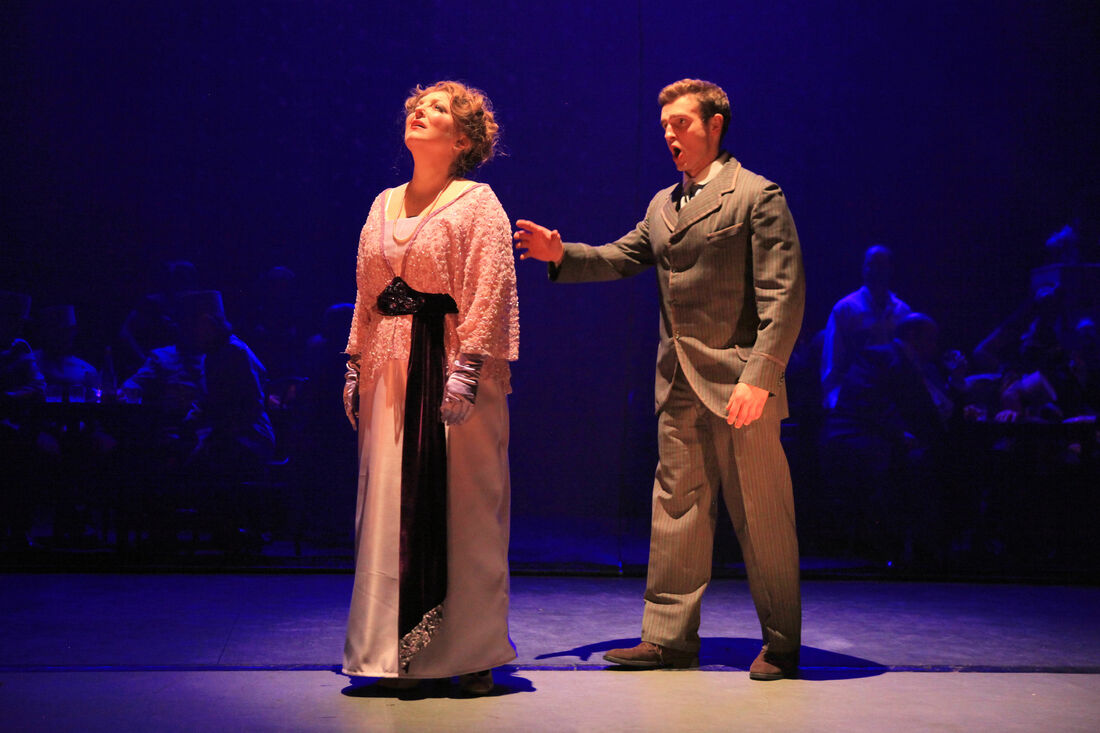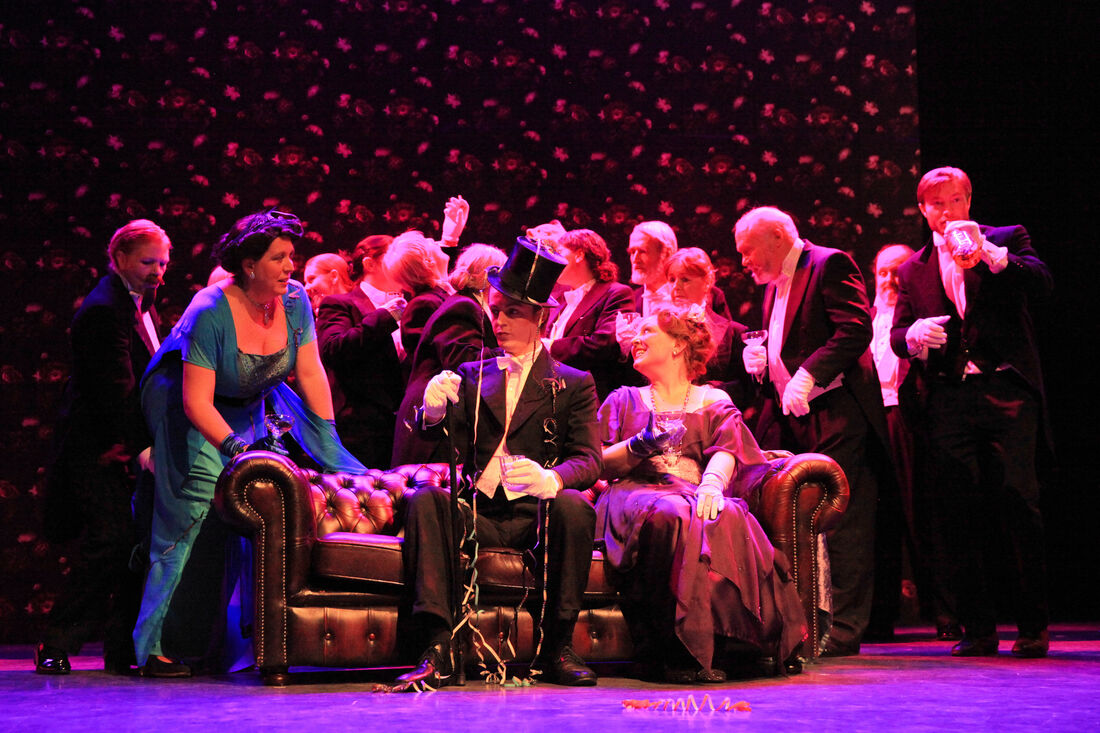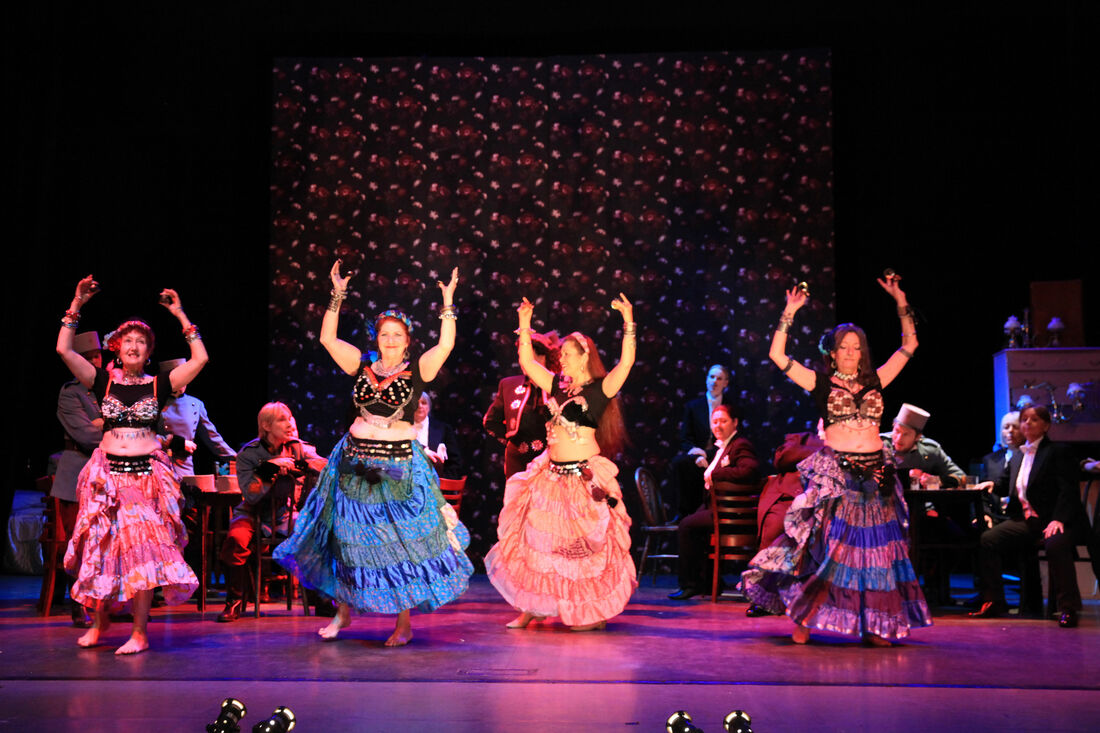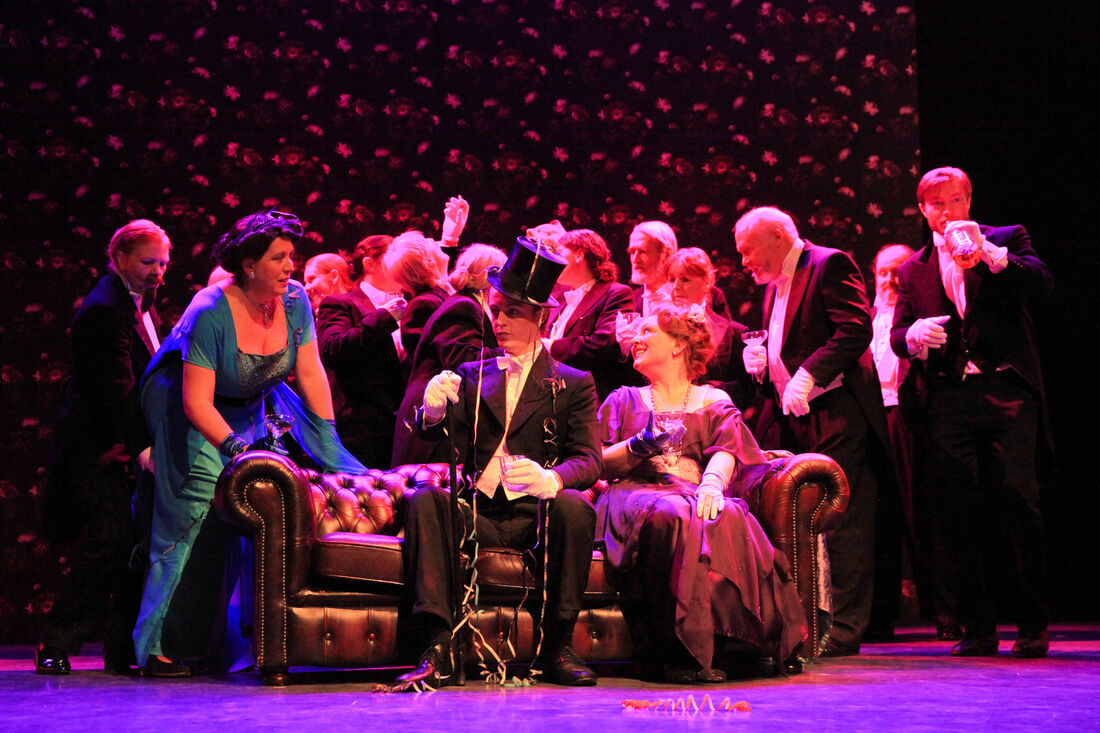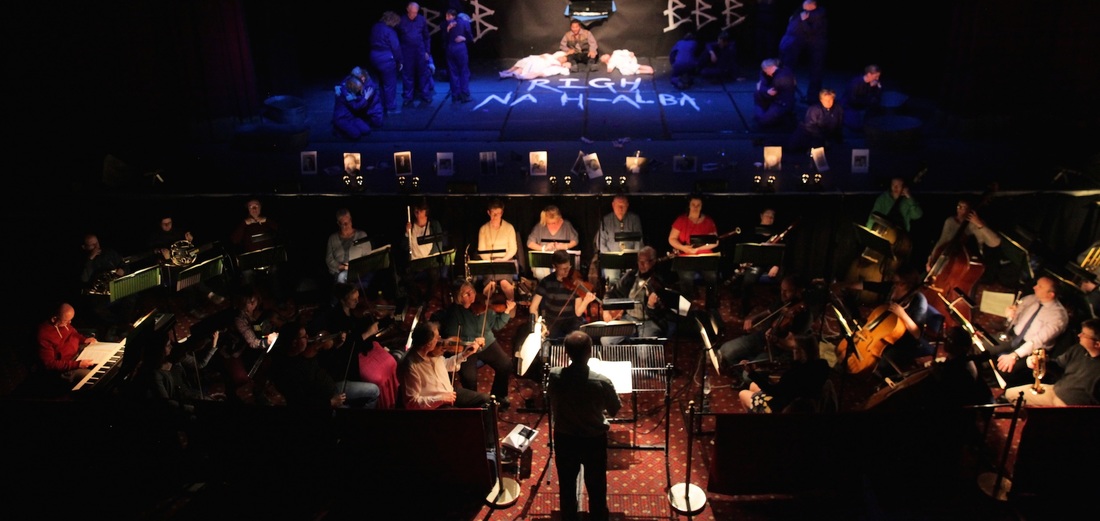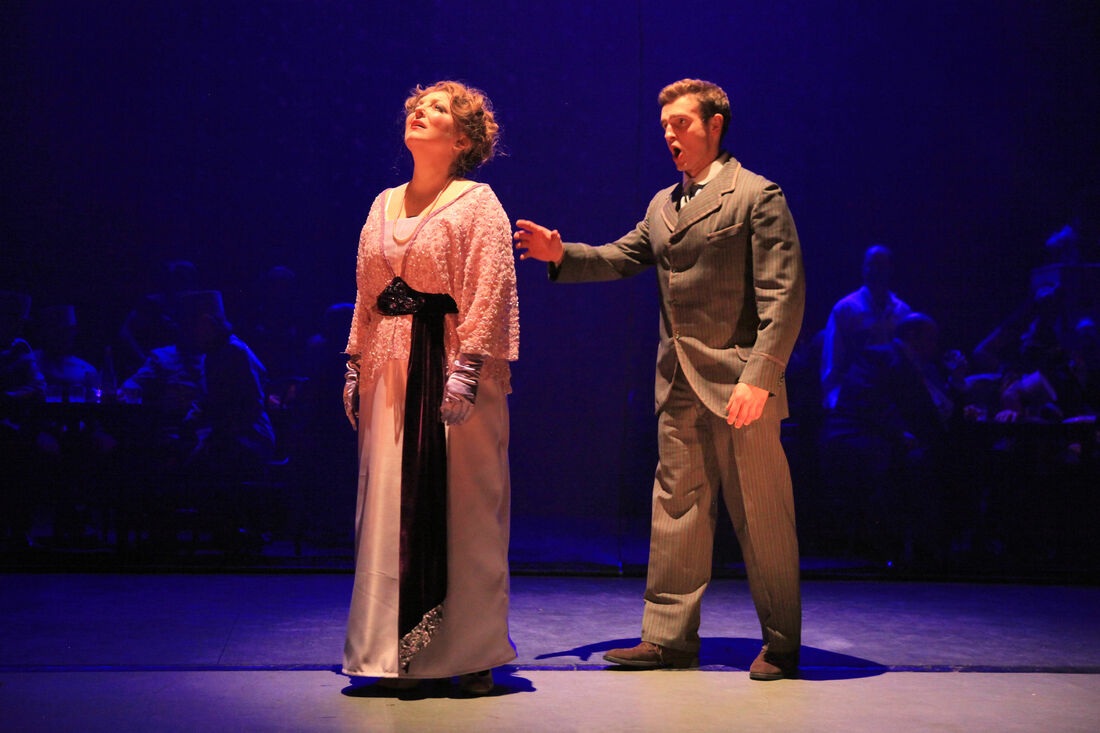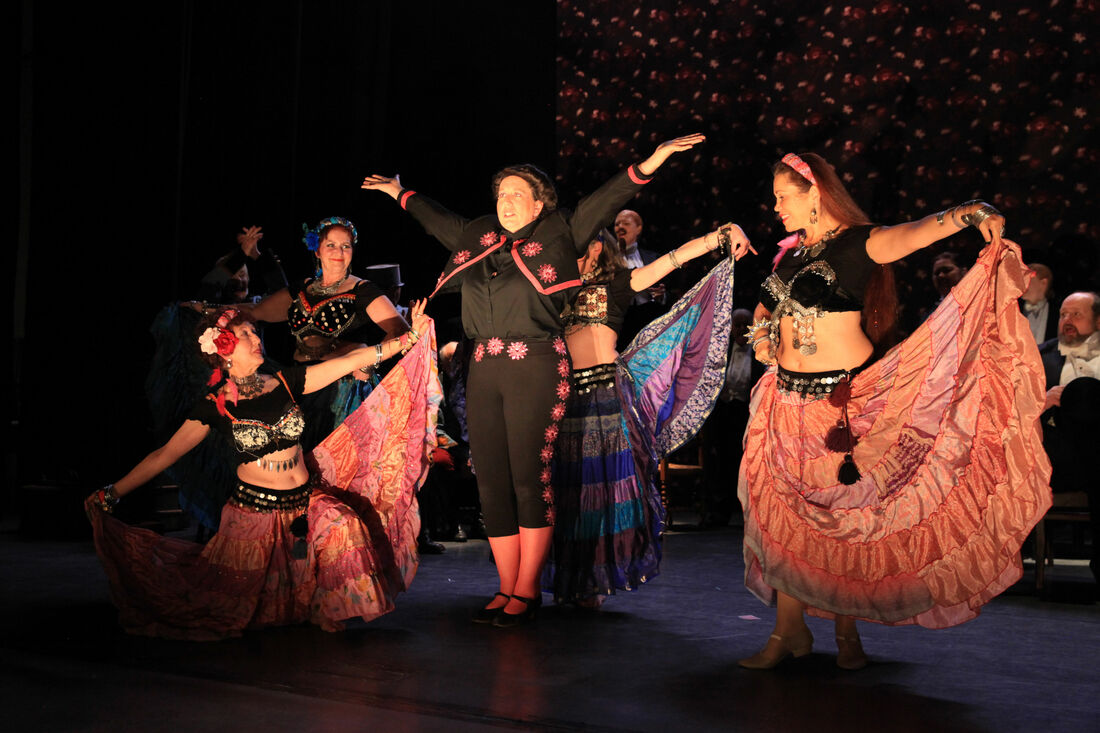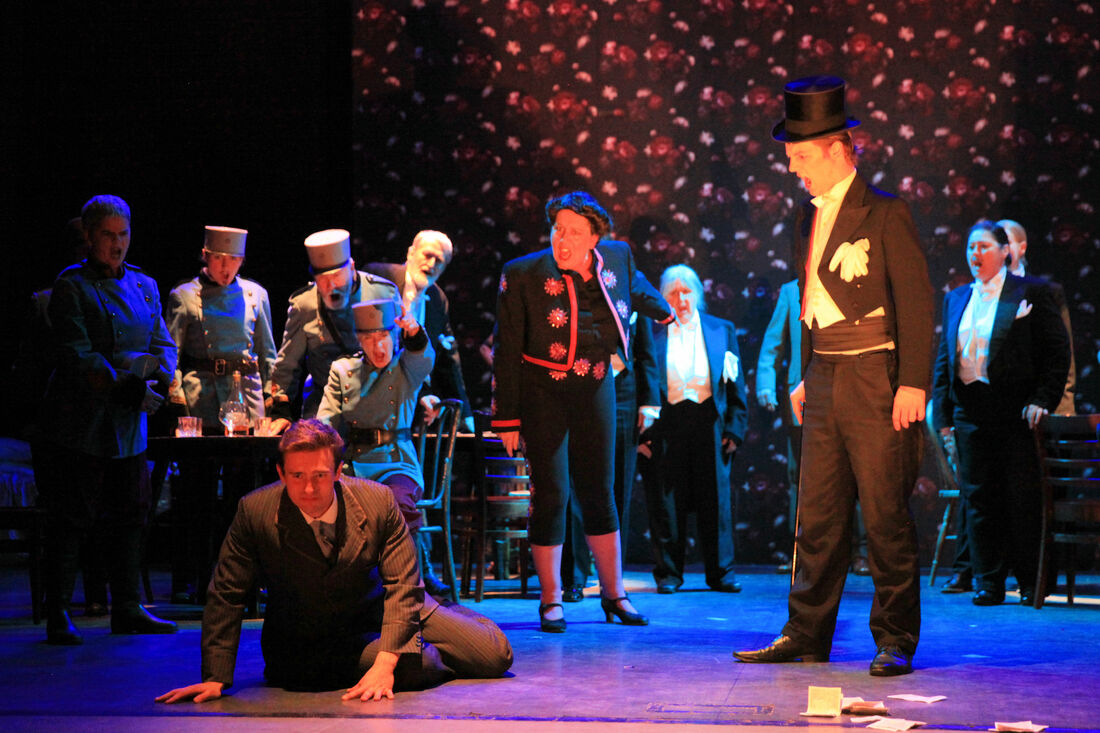Friday 12th and Saturday 13th April 2019
Opera South East presents...
La Traviata – by Verdi
Sung in English with Chorus and Orchestra
Opera South East performed Verdi's La Traviata with the Sussex Concert Orchestra
at Hastings White Rock Theatre on Friday April 12th and Saturday 13th, 2019
|
Director: Fraser Grant
Conductor: Kenneth Roberts Aching to belong yet desperate to be free, Violetta finds herself trapped in a dying body just as a youthful and ardent lover gives her very existence new meaning.
As her life fades away, memories of the recent past swirl before her. Set against the backdrop of a Paris about to be changed for ever, this production of the most beloved of all operas promises to be both poignant and exciting Directed by Fraser Grant, and conducted by Kenneth Roberts who will be joined by the Sussex Concert Orchestra in the pit for this wonderful feast of music and drama Director Fraser Grant's TraviataOpera South East welcomes Fraser Grant back again to direct this April's production of Verdi’s, La Traviata.
Tickets: £21, £17 & £13 (including booking fee) fee-free for White Rock Friends and Groups of 8+ Accompanied children under 16 free Ticket Office: 01424 462288 or via www.whiterocktheatre.org.uk There will be a pre-show talk from the director and cast members at 6pm on Saturday April 13th. This is free and open to all ticket holders from both evenings. La Traviata is an opera in three acts, based on the novel La Dame aux Camelias by Alexandre Dumas fils. The opera was originally entitled Violetta, after the main character. It was first performed on 6 March 1853 at the La Fenice opera house in Venice. Featuring the famous drinking song, a brindisi, Libiamo ne’lieti calici. This now timeless opera will thrill audiences. Further details of Fraser and a link to his biography are below. Recent Audience CommentsAudience reaction of OSE's production of Verdi's Macbeth (April 2016) :-
|
Opera South EastThis year marks our thirty-ninth year of Opera South East, then known as Hastings Opera.
This year also marks sixteen years of collaboration with Artistic Director, Fraser Grant, who has directed no less than eighteen out of the last twenty-six productions for Opera South East. Conducted by Kenneth Roberts, who was in at the very start of OSE, and has not missed one production in all these years; he will be joined by the Sussex Concert Orchestra, in the pit for this wonderful feast of music and drama. For a full history of OSE's past performances see here... |
The CastPrincipals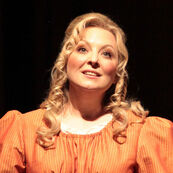
Kristy Swift
Violetta Valery - a courtesan Kirsty is a British-Australian soprano who settled permanently in the UK after winning Australia's "Sun Aria" competition. Last year she fell in love with Russian repertoire when covering the role of "Xenia'' in Boris Godunov for the Royal Opera, Covent Garden Recent roles have included the First Lady in The Magic Flute for Mid Wales Opera, Leonore (Marzelline) for Buxton Festival, Despina in Così fan tutte for London's Opera Lyrica, Naiad in Ariadne auf Naxos, Frasquita in Carmen, Yum-Yum in Mikado for Opera Queensland, Paquette in Candide for both MDR Orch, Leipzig Gewandhaus and for the London Symphony Orchestra at the Barbican Centre. 
Julia Bovee - Mezzo-Soprano
Flora Bervoix, Violetta's friend Julia has been singing with Opera South East for eleven years. She has been cast in many principal roles over the last few years with some of her favourites being Clorinda in La Cenerentola, Anna in Nabucco and Diana in Orpheus in the Underworld, and most recently as Frasquita in Carmen, enabling her to release her inner gypsy! Just five weeks before our performance Julia will be performing in the chorus at Glyndebourne A fuller biography on Julia can be found here... 
Karen McInally
Annina, Violetta's confidante and maid Karen is a regular soloist and chorus member of Opera South East. Operatic roles include Azucena ‘Il Trovatore’, Suzuki ‘Madame Butterfly’, Zita ‘Gianni Schicchi’, Prince Orlofsky ‘Die Fledermaus’, Carmen ‘Carmen’ and most of the contralto roles in G&S operettas including Katya in the recent world premiere of ‘Harrogate or Bust’ at Harrogate International G&S festival, as Arnalta ‘L’incoronazione di Poppea’ and made her Glyndebourne debut in 2013 as Elizabeth Taylor in the world premiere of ‘Imago’ by Orlando Gough and Stephen Plaice. She has directed productions for OSE including ‘Orpheus and Eurydice’ and assisted with ‘Carmen’, ‘Merry Widow’ and ‘La Boheme’, and as Filipevna in Eugine Onegin for OSE last year. A fuller biography on Karen can be found here... 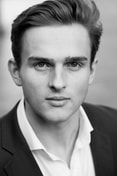
Harry Kersley
Alfredo Germont, lover of Violetta Harry began his musical study at The Royal College of Music Gap Year Experience Program before attending Trinity Laban Conservatoire of Music and Dance, with Master Classes at Trinity and took on roles with opera companies: Gastone in La Traviata with Hampstead Garden Opera, Madame Butterfly with London International Sinfonia at Cadogan Hall, The Magic Flute, and A Night at The Chinese Opera. Oratorio solo concert performances include Messiah, Handel and Olivet to Calvary, Maunder. Charitable events included Henry van Straubenzee Charity Christmas service in front of the Duke and Duchess of Sussex, and Child’s i Foundation’s black tie gala dinner at The Roof Gardens, Kensington. Corporate Events included ones at 10 Downing Street, The 100 Club, The Ned, The Lansdowne Club, London, and The Ritz Carlton Hotel in St Andrews. A fuller biography on Harry can be found here... 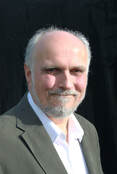
Arthur Coomber
Giorgio Germont, Alfredo's father Arthur studied at the Guildhall School of Music & Drama Opera School and have since sung with numerous Opera companies over many years, performing in France, Belgium, Holland, Germany and as far afield as Tokyo and Barbados. Currently he mainly performs with Cameo Opera at local theatres and other events A fuller biography on Arthur can be found here... 
Alex Roberts
Gastone de Letorieres, a young man about town This is Alex's fourth performance with OSE in one of the principal roles. He was also in two performances with Dorset 2015 and various musical theatre and operetta pieces, and is now looking to develop his singing career further. 
Oscar Smith
Baron Douphol, a rival of Alfredo Oscar Smith is now based in Hastings, East Sussex after studying Vocal Studies at Chichester University, training as a classical vocalist and specialising in Extended Vocal Techniques during the year he spent studying towards a Masters. As well as being a Vocalist, Oscar also plays regularly as an accordionist, pianist and organist and works as a Musical Director and conductor for various choirs and musical ensembles. Upcoming productions include, Bloom Britainniawith Barefoot Opera, The Magic Flutewith Ensemble Orquestra andFiddler on the Roofwith Battle Light Opera Group. 
John Rycroft
Marquis d'Obigny, a nobleman John’s interest in singing started young, winning a talent competition at the De la Warr Pavilion in the mid fifties (1950s). He started singing seriously at the age of ten and hasn’t looked back. At school he was a member of the choral society, the chapel choir and madrigal group. John soon became involved with major London Choirs, becoming Chairman of the City of London Choir and involved with the Philharmonia Chorus, Goldsmiths Choral Union, London Concert Choir and Chelsea Opera Group. Now since moving to Hastings he has become Chairman of Opera South East 
David Woloszko
Dottore Grenvil, Violetta's Doctor David is a professional opera singer from Sydney, Australia based in Bexhill on Sea and have sung Prince Gremins Aria for over 15 years and also performed and covered the role in Russian. David is a Graduate of Sydney Conservatorium of Music, and the Queensland Conservatorium of Music. and made his debut as Don Alfonso in Così fan tutte with Opera Queensland, going on to sing in La Bohème, and Rigoletto before his UK debut in 2004 as Bartolo Le Nozze di Figaro and José Castro in La Fanciulla del West for Opera Holland Park, and was involved in several ENO Baylis education projects, including Pirates of Penzance and A Midsummer Night’s Dream with Gareth Malone. After many roles he returned to Opera Holland Park for the role of Benoit in La Boheme. Last year David performed as Prince Gremin in OSE's production of Eugine Onegin 
Jack Naismith
Guiseppe, servant to Violetta Since making his concert debut in July 2017, singing Schumann’s Dichterliebe, Jack has enjoyed a very active singing schedule performing throughout venues in South-East England and qualifying for the Coop competition in Milan. After repeat performances of his concert debut Jack has organised and sung a wide number of arias and duets concerts. Jack made his operatic debut with Opera South East as Zaretski in our production of Tchaikovsky’s Eugene Onegin, and the year before singing the role of Zaretsky, as part of the chorus and understudying the role of Onegin, and soon after performed with Hampstead Garden Opera singing as Baron Douphol, in Verdi’s La Traviata at the Jacksons Lane Theatre, London. A fuller biography on Jack can be found here... Maya Godlonton-White
Daughter of Giorgio Germont Dancers
Tracy Andrews, Jayney Goddard, Linda Godfrey, Caroline Gurden, Louisa Popham Gentlemen chorus
Gentlemen friends of Violetta and Flora - Matadors, Picadors, Gypsies, Servants etc Judith Bevan, Julia Bovee, Clare Calcott-James, Tina Goddard, Gerald Hewson, Pat Horwill, Kath Keep, Ann Lyon, Karen McInally, Ruth Menzinger, Gillian Muhlemann, Jack Naismith, Holly Nicholls, Alex Roberts, John Rycroft, Sarah Taylor, David Thompson |
Booking informationTicket prices:
We've just won NODA's Best Opera awardNew announcement 31 March 2019...

Fraser Grant
Artistic Director Fraser studied French at Edinburgh University and trained as a director at Drama Studio London. After five years as artistic director of the Drayton Court Theatre Company, he went on to become head of Music Theatre at The London College of Music and Media as well as Head of Drama at the Junior College. He is now Head of Drama at Harvington Prep School in Ealing coupling this with a continuing career in professional Opera and Music Theatre directing. Fraser has Directed 19 prior operas for Opera South East (two of them double-bills), as well as many for Oyster Opera, LCMM, Unicorn Theatre, and has been Theatre Director for productions of many plays in the UK and Italy. Amongst his works he has won several awards for Best Production on the Edinburgh Fringe. He also works as a lyricist and translator, frequently collaborating with the cabaret duo Opera Tottie. A fuller biography of Fraser can be found here... Pre-show talk on Saturday 13th April 2019Fraser Grant, the Artistic Director, will be presenting a free pre-show talk before the Saturday evening’s performance. This will be given in the auditorium of the White Rock Theatre at 6pm, and is free of charge to all ticket holders from either night's performance. This has proved a popular event in recent years and will give you an insight into how and why this particular production is presented in the way it is!
The Sussex Concert Orchestra
conducted by Kenneth Roberts: -
The CompanyDirector - Fraser Grant
Conductor - Kenneth Roberts Choreographer - Sophia Lefevre-White Stage Manager for White Rock Theatre - Adam Harkin Stage Manager for Opera South East Assistant Stage Manager Deputy Stage Manager Set Construction - Karen McInally Lighting Design - Fraser Grant Lighting Technician Properties - Clare Calcott-James Costume Design - Julia Bovee Make up and hair, under the direction of - Juliette Vane Assisted by - Celina Zomer Website - Greg Solomon Programme - John Rycroft Artwork - Julia Bovee Programme Consultant - Simon Page Printed by - Impact Design & Print |
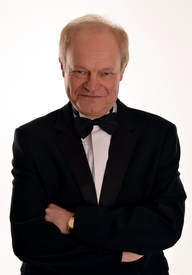
Kenneth Roberts
Conductor/Musical Director
Kenneth Roberts was born in Hastings and educated at York University where he gained BA and MA degrees in music. He works as Musical Director for numerous companies at home and abroad and has conducted over 250 opera, ballet and other theatrical productions. He has played and conducted at many prestigious venues including The Royal Albert Hall, The Festival Hall, The Britten Theatre, Kensington Palace and Hampton Court. His second opera, Mister Butterfly, which he wrote in 1994 was premiered in Hong Kong and subsequently performed at the Edinburgh Festival, and featured in a documentary shown by BBC television and BBC World Service Satellite.
Between 2001-2011 he worked at the University of New Hampshire, USA, where he directed a new African Musical which he was commissioned to write and also composed music for an award-winning ‘international’ children’s piece. He was also musical director and conductor for Plymouth State University’s Educational Theatre Collaborative. In 2002 he fulfilled a commission from the Purcell School in association with the Vaughan-Williams Trust as part of their centenary celebrations to mark the birth of Sir William Walton and in 2005 he completed a commission to write a ballet based on the novel The Trumpet Major by Thomas Hardy. In 2010 he also contributed music for the recently published musical version of 'Pollyanna' and also became a BIFF (British and International Federation of Festivals) adjudicator.
His highly acclaimed reduced orchestral arrangements of operatic scores by Mozart, Rossini, Verdi, Puccini and others are currently being played all over the world and are available from www.smallscores.com. In between times he has enjoyed giving his series of lecture recitals around the country at music clubs, and on cruise liners on subjects ranging from Mozart to ‘Jelly Roll’ Morton and has just released a CD of piano music entitled ‘Around the World in 80 Minutes’.
A fuller biography of Ken can be found here...
Conductor/Musical Director
Kenneth Roberts was born in Hastings and educated at York University where he gained BA and MA degrees in music. He works as Musical Director for numerous companies at home and abroad and has conducted over 250 opera, ballet and other theatrical productions. He has played and conducted at many prestigious venues including The Royal Albert Hall, The Festival Hall, The Britten Theatre, Kensington Palace and Hampton Court. His second opera, Mister Butterfly, which he wrote in 1994 was premiered in Hong Kong and subsequently performed at the Edinburgh Festival, and featured in a documentary shown by BBC television and BBC World Service Satellite.
Between 2001-2011 he worked at the University of New Hampshire, USA, where he directed a new African Musical which he was commissioned to write and also composed music for an award-winning ‘international’ children’s piece. He was also musical director and conductor for Plymouth State University’s Educational Theatre Collaborative. In 2002 he fulfilled a commission from the Purcell School in association with the Vaughan-Williams Trust as part of their centenary celebrations to mark the birth of Sir William Walton and in 2005 he completed a commission to write a ballet based on the novel The Trumpet Major by Thomas Hardy. In 2010 he also contributed music for the recently published musical version of 'Pollyanna' and also became a BIFF (British and International Federation of Festivals) adjudicator.
His highly acclaimed reduced orchestral arrangements of operatic scores by Mozart, Rossini, Verdi, Puccini and others are currently being played all over the world and are available from www.smallscores.com. In between times he has enjoyed giving his series of lecture recitals around the country at music clubs, and on cruise liners on subjects ranging from Mozart to ‘Jelly Roll’ Morton and has just released a CD of piano music entitled ‘Around the World in 80 Minutes’.
A fuller biography of Ken can be found here...
The Sussex Concert Orchestra will feature a 30 piece band for this production of Eugene Onegin
La Traviata - Synopsis of the plot, act by act
The synopsis of an opera is always worth reading before an opera performance, so do buy a programme on the night and get there in time to read it.
The Plot
The plot of this production takes place in Paris and in its surroundings, at the start of 1914 just as France is about to face the horrors of the Great War. The action of the first act takes place on New Year’s Eve 1913; the second in Spring 1914; and the third in July.
ACT I
New Year party at Violetta’s Paris apartments
Violetta Valéry, a young courtesan, famous in the Parisian high society, throws a party in her home. Here, Gaston, Viscount of Letorières, introduces a new admirer to her, Alfredo Germont. He confesses that the moment he saw her, he was fascinated by her beauty and intelligence, though he has never had the courage to tell her. He toasts in her honour before the whole crowd.
Suddenly, she almost faints and everyone jumps in to help, but she asks them to go away. However, Alfredo remains and sincerely declares his love for her. At first she treats him with indifference, trying to reject him, but then realizes that she has never known true love and wonders whether this provincial, honest young man will be able to convince her to love him.
He whispers words of love, warning her that her adventurous life will ruin her health. Violetta knows this, because she is suffering from tuberculosis, but she does not accept the truth and prefers to continue living in luxury and endless parties.
To have the chance to talk to him again, she gives him a Camelia telling him to return it when it has faded, in hope that they will meet soon.
[3 minute pause]
ACT II
Scene 1
Early Spring in Violetta’s house outside Paris
Violetta and Alfredo have been together for three months and have withdrawn to a country house to escape their previous life. Alfredo discovers, however, that Violetta is selling all her belongings to secure their livelihood. Upset that he had not thought of this aspect of their relationship, he decides to go to Paris to raise money.
Meanwhile, Violetta receives an invitation to a cabaret organized by her friend Flora. But she has abandoned that lifestyle, gave up all parties for Alfredo's sake, and no longer wishes to assume the role of a courtesan. While Alfredo is away, his father, Giorgio Germont, arrives at the house. Alfredo had hoped that Violetta's promise to give up her life as a courtesan would persuade Germont to bless their relationship. Even though he discovers that Violetta is a kind and selfless woman, Germont asks her the impossible: to break up with his son. At first, Violetta refuses, but then she finds out that Alfredo has a sister who is getting married and her fiancé would never accept to form an alliance with a family in disgrace. Violetta understands that her status as a courtesan and her relationship with Alfredo could compromise the young girl's future. Grieved, she decides to give up Alfredo and asks Germont to promise her that after she dies, he will explain to his son the reason why she leaves him now.
Alfredo returns and receives a letter of separation from Violetta. Then, Germont reappears to speak privately with his son. He pleads with him to return home. Unmoved by his father's request, Alfredo sees Flora's invitation to the cabaret and angrily decides to go there to ask her for some explanations.
The Plot
The plot of this production takes place in Paris and in its surroundings, at the start of 1914 just as France is about to face the horrors of the Great War. The action of the first act takes place on New Year’s Eve 1913; the second in Spring 1914; and the third in July.
ACT I
New Year party at Violetta’s Paris apartments
Violetta Valéry, a young courtesan, famous in the Parisian high society, throws a party in her home. Here, Gaston, Viscount of Letorières, introduces a new admirer to her, Alfredo Germont. He confesses that the moment he saw her, he was fascinated by her beauty and intelligence, though he has never had the courage to tell her. He toasts in her honour before the whole crowd.
Suddenly, she almost faints and everyone jumps in to help, but she asks them to go away. However, Alfredo remains and sincerely declares his love for her. At first she treats him with indifference, trying to reject him, but then realizes that she has never known true love and wonders whether this provincial, honest young man will be able to convince her to love him.
He whispers words of love, warning her that her adventurous life will ruin her health. Violetta knows this, because she is suffering from tuberculosis, but she does not accept the truth and prefers to continue living in luxury and endless parties.
To have the chance to talk to him again, she gives him a Camelia telling him to return it when it has faded, in hope that they will meet soon.
[3 minute pause]
ACT II
Scene 1
Early Spring in Violetta’s house outside Paris
Violetta and Alfredo have been together for three months and have withdrawn to a country house to escape their previous life. Alfredo discovers, however, that Violetta is selling all her belongings to secure their livelihood. Upset that he had not thought of this aspect of their relationship, he decides to go to Paris to raise money.
Meanwhile, Violetta receives an invitation to a cabaret organized by her friend Flora. But she has abandoned that lifestyle, gave up all parties for Alfredo's sake, and no longer wishes to assume the role of a courtesan. While Alfredo is away, his father, Giorgio Germont, arrives at the house. Alfredo had hoped that Violetta's promise to give up her life as a courtesan would persuade Germont to bless their relationship. Even though he discovers that Violetta is a kind and selfless woman, Germont asks her the impossible: to break up with his son. At first, Violetta refuses, but then she finds out that Alfredo has a sister who is getting married and her fiancé would never accept to form an alliance with a family in disgrace. Violetta understands that her status as a courtesan and her relationship with Alfredo could compromise the young girl's future. Grieved, she decides to give up Alfredo and asks Germont to promise her that after she dies, he will explain to his son the reason why she leaves him now.
Alfredo returns and receives a letter of separation from Violetta. Then, Germont reappears to speak privately with his son. He pleads with him to return home. Unmoved by his father's request, Alfredo sees Flora's invitation to the cabaret and angrily decides to go there to ask her for some explanations.
|
|
Interval of 20 minutes
|
|
ACT II cont..
Scene 2
later that evening at Flora’s establishment
At Flora's cabaret evening, people are talking about Violetta's break up with Alfredo. After the show, Violetta arrives accompanied by Baron Douphol. Blinded by jealousy, Alfredo appears. Thinking that the Baron is Violetta's new lover, Alfredo challenges him to play and rebukes him repeatedly. Extremely troubled by the encounter with Alfredo, Violetta asks to speak to him privately.
When everyone else retires, Alfredo secretly asks Violetta to run away with him. She refuses, hiding the promise she had made to his father. She lies to him that her new lover is Baron Douphol. In anger, Alfredo publicly humiliates Violetta, throwing money in her face and saying he has repaid her. Giorgio Germont, who witnessed the scene, along with everyone else, violently rebukes him and the Baron challenges him to a duel.
ACT III
July. Violetta’s Paris apartments
Violetta, having spent all of her money, lives her last moments in a modest Paris apartment. The only ones who stay by her side are Annina and Dr. Grenvil, who tells Annina that Violetta has merely a few hours to live. The carnival to send the soldiers off to war is underway in the streets of Paris and the cheers of the crowd can be heard. Violetta sends Annina to give the last bit of money she has to the poor, so that she may be alone to read a letter from Giorgio Germont.
Full of remorse, he confesses that he had written to his son about her sacrifice and that they will soon come to visit her. Their return occurs too late, because Violetta is going through the final stages of her illness. Alfredo confesses once more his love for Violetta, who dies comforted by the thought that she has received the forgiveness of the man she loved.
Scene 2
later that evening at Flora’s establishment
At Flora's cabaret evening, people are talking about Violetta's break up with Alfredo. After the show, Violetta arrives accompanied by Baron Douphol. Blinded by jealousy, Alfredo appears. Thinking that the Baron is Violetta's new lover, Alfredo challenges him to play and rebukes him repeatedly. Extremely troubled by the encounter with Alfredo, Violetta asks to speak to him privately.
When everyone else retires, Alfredo secretly asks Violetta to run away with him. She refuses, hiding the promise she had made to his father. She lies to him that her new lover is Baron Douphol. In anger, Alfredo publicly humiliates Violetta, throwing money in her face and saying he has repaid her. Giorgio Germont, who witnessed the scene, along with everyone else, violently rebukes him and the Baron challenges him to a duel.
ACT III
July. Violetta’s Paris apartments
Violetta, having spent all of her money, lives her last moments in a modest Paris apartment. The only ones who stay by her side are Annina and Dr. Grenvil, who tells Annina that Violetta has merely a few hours to live. The carnival to send the soldiers off to war is underway in the streets of Paris and the cheers of the crowd can be heard. Violetta sends Annina to give the last bit of money she has to the poor, so that she may be alone to read a letter from Giorgio Germont.
Full of remorse, he confesses that he had written to his son about her sacrifice and that they will soon come to visit her. Their return occurs too late, because Violetta is going through the final stages of her illness. Alfredo confesses once more his love for Violetta, who dies comforted by the thought that she has received the forgiveness of the man she loved.
Director's notes
The basic premise of our Traviata is very simple. We begin at the end and end where we began.
The character of Violetta Valerie is based largely on the real life courtesan Marie Duplessis, who was the mistress of many prominent men, including Alexandre Dumas fils, who made her the central figure of his novel ‘La Dame Aux Camelias’, which inspired this opera. Although Duplessis lived a rich and extravagant life, she died in poverty and most of her belongings were auctioned off to pay her debts and funeral expenses. This fact haunted me; the idea that our life is just a series of collecting and passing on: lovers, possessions, ideas and life. Almost nothing is sacred. The one thing we have and can hold onto is our memories. So this production is one long memory. As Violetta enters the final stage of her illness, and her belongings are being auctioned off, taken away, sold on to pay for the life she is about to say farewell to forever, certain small objects and possessions trigger the intense memories of the final 7 months of her life. The months where she finally found something to live for. I chose to set the piece in the lead up to World War 1 because I felt this echoed Violetta’s life. Paris is having its last hurrah before it is plunged into darkness and the world is changed forever. People are partying hard before the inevitable happens. The ‘gay old world’ is about to give way to something much more modern, cynical and uneasy. Ticket box office: 01424 462288 or via www.whiterocktheatre.org.uk
|
Special thanksSpecial Thanks and acknowledgements to:
Make a weekend of it in Hastings?There's lots of hotel choice in the area, e.g.
|
Photos from the Technical Rehearsal of this production at the White Rock Theatre on 9 April 2019
kindly by courtesy of Mark Duncan, Phototonic Science

